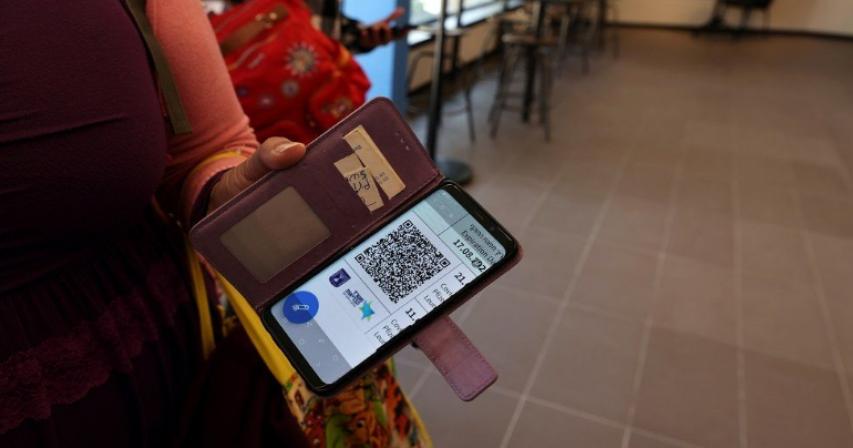Covid passports - Plans criticised by MPs amid fears of two-tier Britain
- 5 years ago

Criticism is growing over plans for Covid passports in England, amid fears they could create a "two-tier" society.
Government documents released on Monday said such certificates - that prove if someone has had a vaccine, has tested negative or has immunity - were likely to become "a feature of our lives".
At Monday's press conference, Boris Johnson did not rule out the idea.
But many MPs have criticised the plans, with senior Tory backbencher Mark Harper calling for a vote on the issue.
The idea of coronavirus status passports was originally understood as a way to open up international travel, but the UK government is also considering whether they can be used to reopen life in England. Discussions have also been taking place across the devolved nations.
A government review is currently being carried out to see how the passports could work - and they are going to be trialled at upcoming events including the FA Cup final.
No decision has yet been made on whether they will be introduced, but on Monday, the government published an update on its review.
It said Covid status certificates could play a role in allowing people to return to theatres, nightclubs and mass events like festivals, and could allow social distancing to be relaxed in hospitality venues.
"Even without government intervention, Covid status certification is likely to become a feature of our lives until the threat from the pandemic recedes," it added.
'Not acceptable'
But opposition to Covid passports being used within the UK has been mounting for a while, and last week a group of more than 70 cross-party MPs criticised the plan.
Many of them feel that demanding medical proof in order to take part in local community life, for example going to venues like pubs, is discriminatory and divisive.
Mark Harper, who chairs the Covid Recovery Group of Conservative MPs which is against lockdown restrictions, said it was not acceptable for the end of social distancing to depend on passports.
"By 21 June the government has promised 'no legal limits on social contact' or 'on all life events'," said Mr Harper in a statement.
"So if the government instead wishes to introduce Covid status certificates (domestic vaccine passports), then it should ask Parliament to give its approval as ministers have promised.
"Trying to introduce these domestic vaccine passports by the back door by linking them to removing social distancing rules just won't be acceptable either."
He said it was "crucial" that MPs are allowed to vote on the issue.
"Whether the state legislates for it, recommends it or simply allows it, Covid status certification will lead to a two-tier Britain and these issues need debating thoroughly and carefully before we allow them to affect the lives of our constituents."
When Prime Minister Mr Johnson was asked about the idea at the press conference on Monday, he said Covid passports would not be needed for the easing of restrictions next week or on 17 May.
He acknowledged there were "ethical and practical issues" and added: "You have to be very careful how you handle this and don't start a system that is discriminatory."
"But I want to stress that we are some way off finalising any plans for Covid certification in the UK," he said.
The government's review into Covid passports is not expected to be finalised until the summer.
Several countries are already implementing their own passport schemes. In Israel - which has the highest vaccination rate in the world - people who have been fully vaccinated are able to show a "green pass" to be allowed into facilities such as hotels, gyms or theatres.
The debate comes as Mr Johnson confirmed that England's next step of lockdown easing would go ahead as planned.
It means from 12 April, non-essential shops, gyms, hairdressers and close contact services can reopen, as well as hospitality venues serving food and drink outdoors.
It comes as more than 5.4 million people in the UK have been fully vaccinated, with a total of more than 31.5 million first doses given.
Latest government figures released on Monday showed another 2,762 cases had been confirmed, and a further 26 people had died with coronavirus within 28 days of testing positive.
Source: BBC
Comments